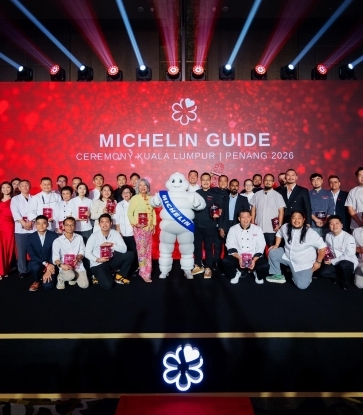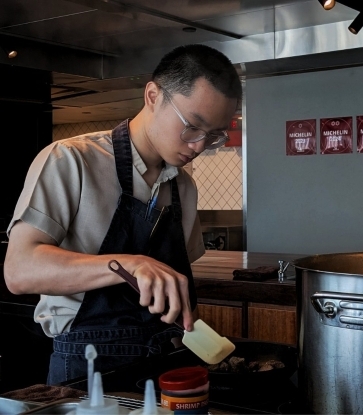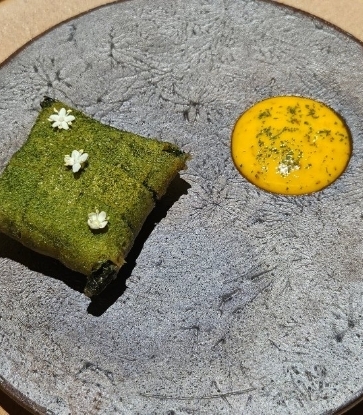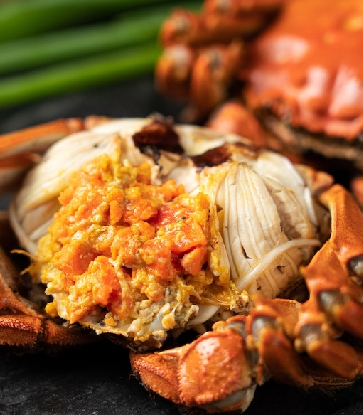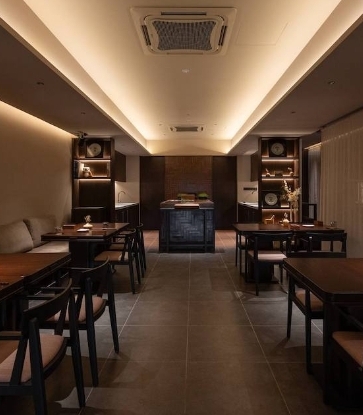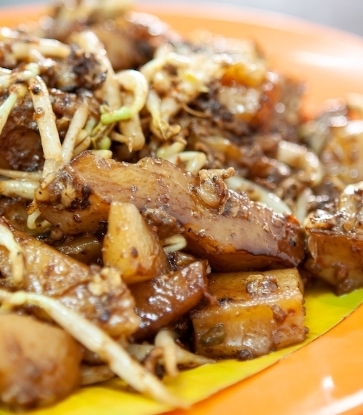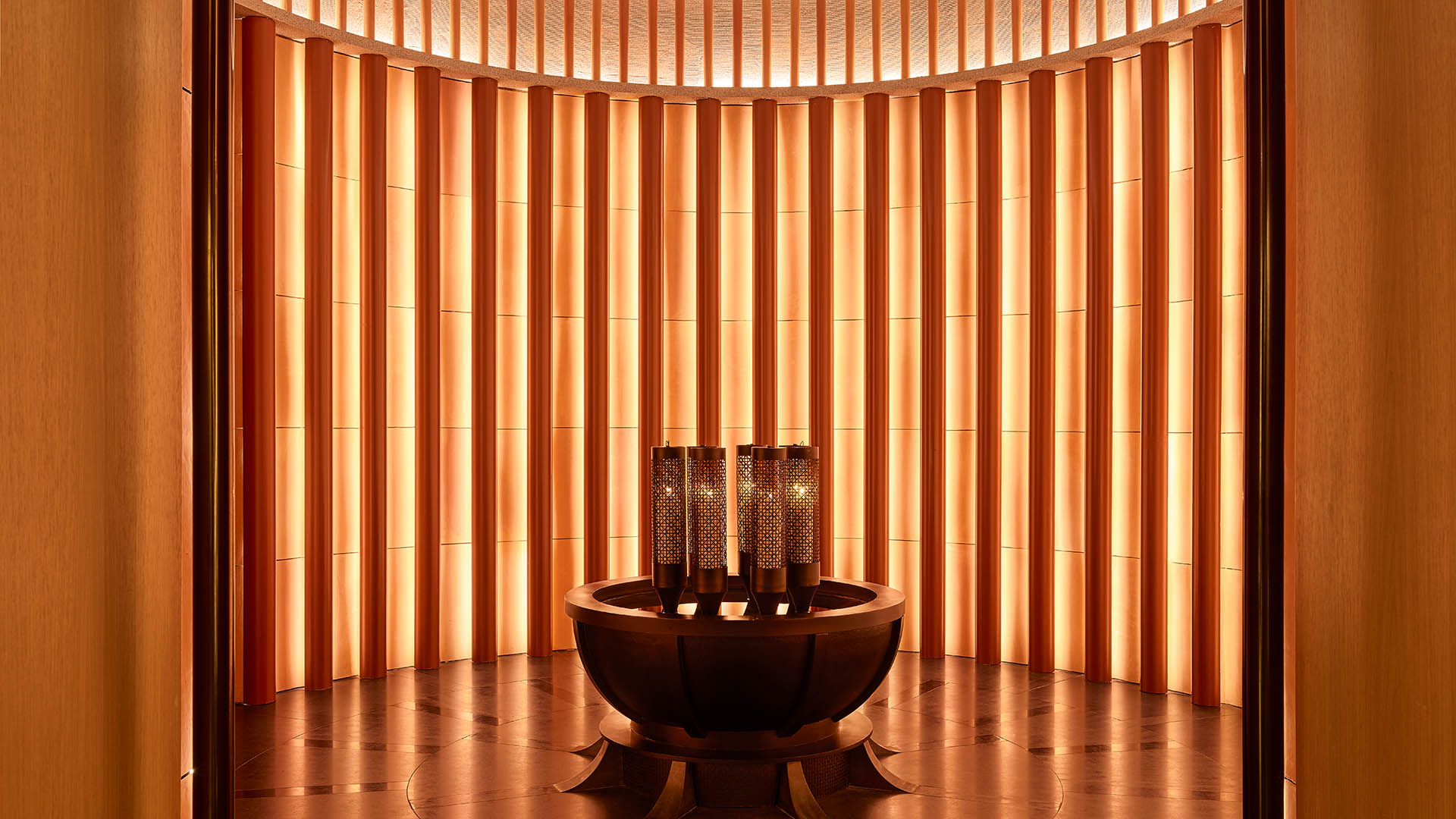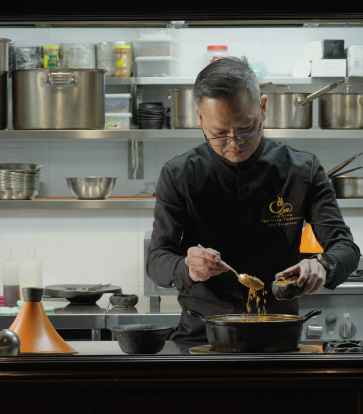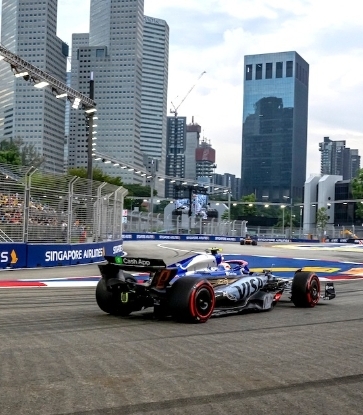It is an undeniable fact that technology has become indispensable for MICHELIN restaurants in Malaysia — particularly in Kuala Lumpur and Penang. Apart from opening wider access for curious diners to enjoy various dishes, technology has also played a part in bringing restaurants together and, of course, streamlining booking services that ensure more efficient and convenient experiences for restaurant guests and patrons.
Technology has also revolutionised the way restaurants have managed their bookings. Especially with the arrival of the MICHELIN Guide in Kuala Lumpur and Penang, gone are the days when interested diners would use the landline to make a reservation. Advanced systems and online booking platforms such as FunNow allow customers to book their seats at their preferred dates and times in a few easy clicks.
Technology further provides restaurants with the ability to manage and organise their reservations effectively, optimising table turnover and reducing the likelihood of overbooking. Most importantly, technology has also lent a platform for the guests’ voices to be heard by allowing them to leave feedback and reviews, enabling restaurants to improve their services based on the valuable data and insights gathered. As a result, restaurants are able to improve on the dining experience, making it even more personal and tailoring their menus to meet their patrons’ demands.
Today, we sit down with five MICHELIN restaurant chefs in Kuala Lumpur and Penang to talk about how technology has helped shape and benefit their businesses today.

Au Jardin (Penang)
One MICHELIN StarMICHELIN Guide Kuala Lumpur & Penang 2023
Au Jardin is an elegant and intimate 30-seater restaurant that places an emphasis on natural and seasonal ingredients. The artisanal menu, curated by chef-patron Kim Hock Su, is built around his passion in showcasing the freshest ingredients through simple but beautiful dishes that reflect both culinary tradition and creativity. The team at Au Jardin firmly believes that every ingredient has its place and purpose.
“A typical dining experience at our restaurant involves a dégustation format that runs for around two-and-a-half hours, allowing guests to savour and appreciate each course at their own pace,” says Su.
When asked about the diner profile of Au Jardin, Su explains that majority of guests are mostly couples, friends, and families, “but in recent times, we are getting many solo travellers as well,” he expresses.
“In general, dining behaviour has since evolved. Nowadays, patrons are becoming more discerning and are always on the lookout for unique and memorable dining experiences. They are increasingly conscious of the quality of ingredients and value the craftsmanship in gastronomy,” emphasises Su.
“Technology has not only improved the restaurant operations in Malaysia, but it has also been able to expand and reach a wider market and give a better customer experience. It has become an integral part of the gastronomic landscape, shaping the way restaurants engage with their customers.”
According to Su, Au Jardin has been engaging with an online booking platform ever since it opened. He says that when it comes to the booking platform, no challenge is too big, especially with supportive partners like FunNow. “They are always there to work with us on troubleshooting all the hiccups. Best of all, they listen to what we need and constantly improve on the interface,” he says.
“Technology, particularly online reservation platforms, has streamlined the reservation process for both customers and restaurants,” Su continues. “It has certainly added convenience for customers keen to make a booking, and at the same time, it has allowed us to focus on giving the best dining experiences, knowing that the reservation has been managed by the system efficiently. Also, we love that the data and information generated from the system provide valuable insight for us to personalise our guests’ experiences.”

Akâr Dining
MICHELIN SelectedMICHELIN Guide Kuala Lumpur & Penang 2023
“Technology has made it friendlier for us to interact with our guests prior to their arrival, which I personally think is important. More so, it eases our work with clarity and correct information.”
Tan shares that Akâr sees a wide array of customer profiles locally and internationally. “Before we had a booking platform in place, our biggest challenge was that we struggled to jot down precise information of our guests and their specific requests.”

Eat and Cook (Kuala Lumpur)
MICHELIN SelectedMICHELIN Guide Kuala Lumpur & Penang 2023
Eat and Cook is a Malaysian omakase restaurant, and according to its chef, Lee Zhe Xi, the best way he could describe the experience at Eat and Cook is that of a journey. “We speak on culture, flavour, ingredients, and memories that are unique to Malaysian locals,” Lee says. “Eat and Cook is a stage — a stage for us to show our dream, our culture, and our memories. This is the platform for us to show our Malaysian hospitality,” he explains proudly.
With regard to the current dining landscape, Lee says that Eat and Cook’s diner profile is split in half — “fifty percent local customers and fifty percent tourists,” he shares. “The customers have been thankfully open with our approach to the dining experience. Before, it was a mess without a booking system!” he laughs. “But now, we’re so happy to have a platform that helps lower the risk of overbooking, and we are able to accommodate a higher volume of customers in advance. This helps our team focus better when it comes to preparing for service. Having a solid booking system in place also helps lower the risk of us forgetting our customer profiles and dining preferences.”
“From the perspective of the front-of-house, technology has definitely helped a lot in lowering the risk of getting the wrong information. Pertinent details such as allergies, favourite seats, wine preferences — those details can either make or break the dining experience.”
“Our kitchen is also using technology now to improve our cooking and attention to detail. Improving the hospitality of Malaysia’s dining scene through technology definitely helps elevate our gastronomic landscape,” says Lee.

Gēn (Penang)
MICHELIN SelectedMICHELIN Guide Kuala Lumpur & Penang 2023
“Gēn is a restaurant that draws its interpretation from Malaysia’s local produce, focusing on the Northern region’s ingredients,” says Gēn’s chef and founder, Johnson Wong. “Our cuisine's approach is simple yet bold in terms of flavour and stories; the connection between the ingredients, people, and community surrounding us is what makes our cooking what it is. When the seasons change, the ingredients change, too. We are agile and quick to adapt to different ways of cooking and presenting the dishes to suit the environment we are in. We serve only one tasting menu at a time, changing the menu four times a year.”
Because Gēn is nestled in the heart of Georgetown, Penang, Wong explains that 80% of the restaurant’s clientele are travellers who, oftentimes, want to enjoy and experience the essence of Penang during their visits. “We can relate to their search of local and authentic Penang vibes, where serving styles and dining environments tend to be more casual and relaxed,” says Wong. “The challenge comes from the last-minute change of plans,” Wong expresses. “From time to time, we encounter no-shows and sudden cancellations. We counter that by putting down a meticulous reservation system that helps us to be more efficient in every aspect,” he says.
“Technology advancement has played a very significant role in handling our everyday tasks,” Wong continues. “From the kitchen prepping the mise-en-place accurately and according to the number of reservations, right down to front of house servicing, we are able to allocate the right timing, seats, and best service to the guests.”
“Information put up on our websites and social media platforms such as the menu, operating hours, and reservation availability can be easily retrieved by guests immediately. This speeds up the whole reservation process, making the dining experience effortless.”
Wong adds that as technology is fast and capable to keep track of data, the team at Gēn can review the guest list and use it for continuous improvement. “Kaizen — making the dining experience more personalised,” he says. “In summary, to me, it’s all about achieving maximum productivity with minimum effort required.”
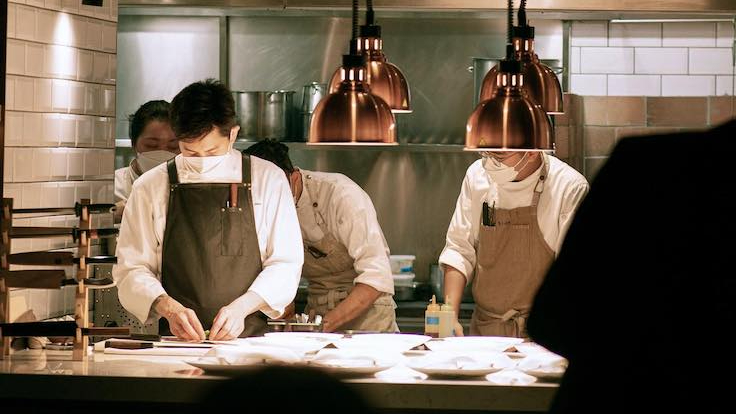
Hide
MICHELIN SelectedMICHELIN Guide Kuala Lumpur & Penang 2023
“Hide in Kuala Lumpur is a chef’s table restaurant that serves a seafood-focused tasting menu,” says Shaun Ng, the head chef of Hide. “Our food revolves around innovative cuisine, where we take inspiration from all cultures. The chefs do the explaining of all the dishes, so that if the guests have any questions, they can ask our team directly, breaking the barrier between the back-of-house and the diners.”
Ng shares that one of the biggest challenges faced by Hide, in terms of bookings, was that his staff had to constantly reply to messages. “I would usually have to take over the reservations line on Mondays, even if it was my day off. Thanks to technology, we’ve adopted a booking platform, FunNow, and it now eases things as customers can directly book online without a single staff member needing to constantly be on the phone.”
“New age technology and equipment allows us as chefs to complete our daily tasks at a much faster speed compared to back then. Having things that can be automated, while performing other tasks, helps speed up the preparation process.”
Header image is from Eat and Cook.






